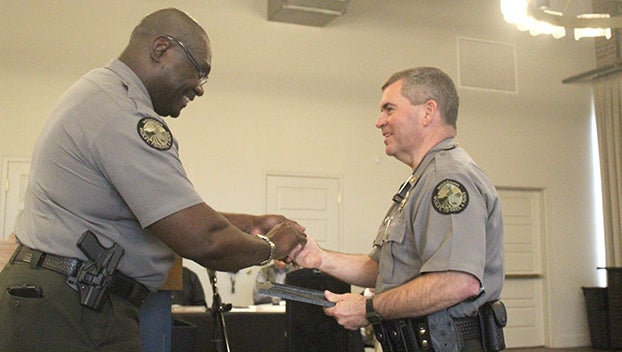You asked: Multiple scams targeting Lincoln County
Published 8:50 pm Saturday, February 18, 2017
Q: Someone from the power company called saying I owe money and if I don’t pay, they’ll cut off my lights. Is this a scam?
A: If you receive a call from a company asking you to pay a bill over the phone, verify the request is legitimate.
The Brookhaven Police Department received three calls from businesses and a resident in Brookhaven Thursday.
Two calls came from business owners who said a representative called them pretending to be Entergy. They threatened to disconnect their power if they didn’t pay the debt with a Green Card prepaid debit card, said Police Chief Bobby Bell.
“Companies like Entergy don’t contact you over the phone, so don’t send anyone any money,” Bell said.
The third report came from a woman who received a call saying she was eligible for a grant. The scammers only knew her name and address, and wanted her to provide the additional information.
Although these individuals caught on to the scam, there are many people who don’t.
Bell says three calls reported in one day is a lot for the city of Brookhaven. “Think about the people that didn’t contact us,” he said. “It’s going to be a continuation. If you see it on the TV or news or somewhere, it’s going to be an ongoing situation here.”
Sheriff Steve Rushing has dealt with people reporting scams in the past as well. “We usually do a report or refer them to the attorney general’s office,” he said. “There’s a couple of federal agencies too, but it depends on the type of scam.”
An ongoing scam in Jackson hasn’t been reported in Lincoln County, but that doesn’t mean residents here haven’t been called, Attorney General Jim Hood said.
Hood warned Mississippi taxpayers recently that scammers are targeting a wide range of organizations attempting to collect W-2 data that can in turn be used to file fraudulent tax returns.
According to the Internal Revenue Service, scammers are now combining two common scams into one, he said. First, the criminals will send an email to an employee in the human resources department that initially appears to be from the company CEO or another corporate executive, asking for copies of the W-2 forms of all employees. Next, they follow up with an urgent request to transfer a large sum of money to a bank account controlled by these cyber criminals.
Hood urges residents to remember that when they receive sudden or unexpected requests like this from someone in authority at their workplace, they may be spoofed emails. “Employees should always verify by phone that this is a legitimate request coming from that executive,” he said. “Employees who would have W-2 information, such as accounting or human resources personnel, are particularly susceptible to this scam. All types of organizations are possible targets, including schools, healthcare organizations, non-profits, and private businesses.”
According to data from the Federal Trade Commission, tax refund fraud increased by nearly 50 percent in 2015. This year, the IRS has warned that criminals have started tax refund scams much earlier than in previous years.
Consumers who are not required to file a return and those who are not actually due a refund from the IRS can still be victims of refund fraud. The best way to avoid becoming a victim is to file taxes as soon as possible, before the fraudsters can.
Consumers who need to report information about a phishing scam or any tax-related scam should contact the Consumer Protection Division of the Mississippi Attorney General’s Office at 800-281-4418.
To report a scam, call the Brookhaven Police Department at 601-833-2424 or Lincoln County Sheriff’s Office at 601-833-5251.





